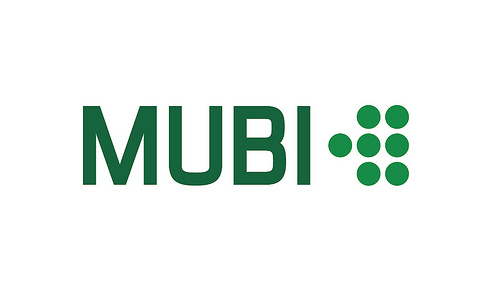HANNAH AND HER SISTERS and Narrative Cinema
6 November 2011
Typically, in narrative cinema any actions and/or characters that society deems “wrong” or “bad” must be corrected by the film’s conclusion. For example, if a character in a film commits a crime he or she must be “punished” before the film ends so the audience can leave the theatre with the restored illusion that “good conquers all.” Case in point, the wicked witch of the West has to die in The Wizard of Oz because she is “bad,” and Scarlett cannot end up with Rhett in Gone With the Wind because she lied, cheated, and manipulated throughout the film; although Scarlett is “punished” less severely than the witch, because her “crimes” are less severe, in the parameter of narrative cinema, both characters must be held accountable for their improper behavior. Generally, narrative cinema must reconcile the “good” and “evil” in a film the way society wishes “rights” and “wrongs” could be reconciled in reality.
Woody Allen’s 1986 film Hannah and Her Sisters resists this typical rule of narrative cinema by attempting to expose characters’ flaws without judgment or penalty. Allen’s film captures two years in the lives of three sisters: Hannah (Mia Farrow), Lee (Barbara Hershey), and Holly (Dianne Wiest). In short, Hannah is married to Elliot (Michael Caine), but Elliot is in love (or lust) with Lee. Lee is in a relationship with Frederick (Max von Sydow), a much older, socially inept scholar, but also feels an attraction to Elliot. Holly, a recovering drug addict and failing actress, competes with her best friend, April (Carrie Fisher), for the affection of a narcissistic man; yet, ultimately, ends up with Hannah’s first husband, Mickey (Woody Allen). Basically, the sisters’ relationships intermingle throughout the film, and this is where Allen subtly, yet charismatically showcases the “wrongs” of these characters without condemnation and consequence.
First, Elliot and Lee do have an affair, which goes on for several months. Although they both feel guilty about their actions, they have a difficult time resisting their attraction to each other. Frederick, Lee’s lover, immediately suspects the affair, which Lee confirms, and the pair break up. Hannah suspects her relationship with Elliot is weakening, but remains in the dark about the cause. Literalizing this metaphor, Allen includes a scene between Elliot and Hannah in which the two lay in bed together in the pitch black. Expressing her anguish about the strain on their marriage, Hannah tells Elliot she feels “lost.” In response, Elliot flips the light back on in the room, turns to Hannah, and reassures her she is not lost. After this, Hannah is no longer in the dark, literally and figuratively, because Elliot’s affair with Lee ends, yet Hannah never finds out about the infidelity.
Typically, this affair must be exposed, either accidentally or through confession, for the audience to accept the film. Hannah may forgive her sister and husband or not; either way, the audience would, likely, side with Hannah because she was wronged by Lee and Elliot. Because the affair is not revealed, a very big “wrong” in the film is not rectified. In this way, Hannah and Her Sisters refuses the prescriptive nature of narrative cinema. The film does not feature the ideal resolution for the situation. Instead, the film is more descriptive. Much like the reality it describes, the film ends with secrets and lies unresolved.
Moreover, the film’s final scene masks itself as a “happy ending,” but, in fact, leaves the audience speculating about Holly’s fidelity. In the film’s conclusion, Holly stands in front of a large mirror at her family’s home on Thanksgiving. The camera watches through the mirror’s reflection as Mickey, Holly’s now husband, surprises her from behind. The two have a sweet, intimate exchange, and, at the very end, Holly turns to Mickey and tells him she is pregnant. Mickey becomes overjoyed, the two embrace once more, and the credits role.
Yet, the audience knows, from a flashback earlier in the film, Mickey is infertile. The flashback captures, in detail, when Mickey and Hannah tried to have children during their marriage. Knowing Mickey is unable to have children, how is Holly’s pregnancy possible? While there are plausible answers to the question, it still seems curious the film would conclude with this “happy ending” after covering Mickey’s inability to father children.
Once again, the film toys with the audience. The end is a trick. The audience wants to see the film end happily; that’s what narrative cinema should do. Yet, the audience cannot entirely trust the film’s conclusion. Did Holly have an affair? Perhaps…the film is full of affairs after all. And, Holly’s father questions, earlier in the film ina passing comment, his own childrens’ paternity, which plants the seed of suspicion. Moreover, Allen films the scene though a mirror, which is always a red flag. Shots though reflections are indirect, meaning the camera, and therefore the audience, is once removed from the character(s) or action being filmed. This camerawork further supports speculation that something about this pregnancy is not entirely trustworthy. Similar to the treatment of Lee, Elliot, and Hannah, the film is keeping a secret, only this time the secret is kept from the audience, not Hannah.
Theoretically, and statistically, audiences do not respond well to narrative films that don’t rectify the wrongs and do not end happily. Hannah and Her Sisters, like Allen’s later film Crimes and Misdemeanors, proves this theory has exceptions. Hannah and Her Sisters is one of Allen’s highest grossing films to date. Whether or not Holly had an affair, and regardless of Elliot and Lee’s indiscretion, audiences responded well to Hannah. Quite possibly, Allen created nuanced enough characters in this film, and captured them so realistically, that the audience recognized themselves in Lee, Elliot, Hannah, Mickey, and Holly, thus accepting their flawed behavior without consequence.
Rate this:
Related
~ by Kate Bellmore on 06/11/2011.
Posted in Thanksgiving Classics
Tags: Barbara Hershey, Dianne Wiest, Hannah and Her Sisters, Mia Farrow, Michael Caine, narrative cinema, Woody Allen


















Why do you think -form Mickey’s perspective- that he was joyed and kissed Holly in the final scene and he knows he can’t have children instead of blaming her or facing her with the truth?
shazly said this on 29/03/2014 at 2:21 PM |
Great question…I am not sure there is an easy answer, other than her revelation that she is pregnant signals a pattern of infidelity and divorce will recur. Your thoughts?
Kate Bellmore said this on 30/03/2014 at 7:29 PM |
I’m not sure also but i don’t think divorce will recur. I think that he accepted that Holly is pregnant because he loves her, the love which gives Micky the meaning of life. I’m thinking in that because when he escaped the possibility of death by brain tumor he went to search for the meaning of life in philosophy -he wasn’t satisfied then he said “Maybe poets are right. Maybe love is the only answer” also he tried different religions and wasn’t satisfied. Also Holly gives Mickey this experience of kind of different life where you get high, listen to rock music, etc.. This possible death experience and the search for meaning turned Mickey’s feelings towards Holly’s from “The worst night in my life” to loving her and (overlooking?) her pregnancy.
Shazly said this on 31/03/2014 at 7:39 PM
One thing about the movie which I’ve never seen mentioned but which always strikes me as a very nice touch is that Hannah’s big upcoming role mentioned in the final scene is as Desdemona in “Othello”. Given the nature of the Shakespearean play, with its false but believed accusations of infidelity, perhaps this too has some bearing on the final “I’m pregnant” line… with the audience, as with the Moor, a clue is planted in the mind of the watcher which makes it look as though infidelity has taken place, but none has. Any thoughts?
James said this on 08/10/2013 at 8:56 AM |
That is a great catch! Allen’s humor is rather unmatched. Will Allen’s character ever believe a woman can be faithful? Who knows. This catch suggests there is no “happy” ending, instead a bleaker and more realistic progression.
Kate Bellmore said this on 26/12/2013 at 9:56 AM |
Howdy just wanted to give you a quick heads up. The text in your content seem to be running off the screen in Internet explorer. I’m not sure if this is a formatting issue or something to do with browser compatibility but I figured I’d post to let you know. The design look great though! Hope you get the problem fixed soon. Thanks
Rachell Selnes said this on 23/11/2011 at 7:58 PM |
Fixed (I think)! Thanks!
Kate Bellmore said this on 01/01/2012 at 11:55 PM |